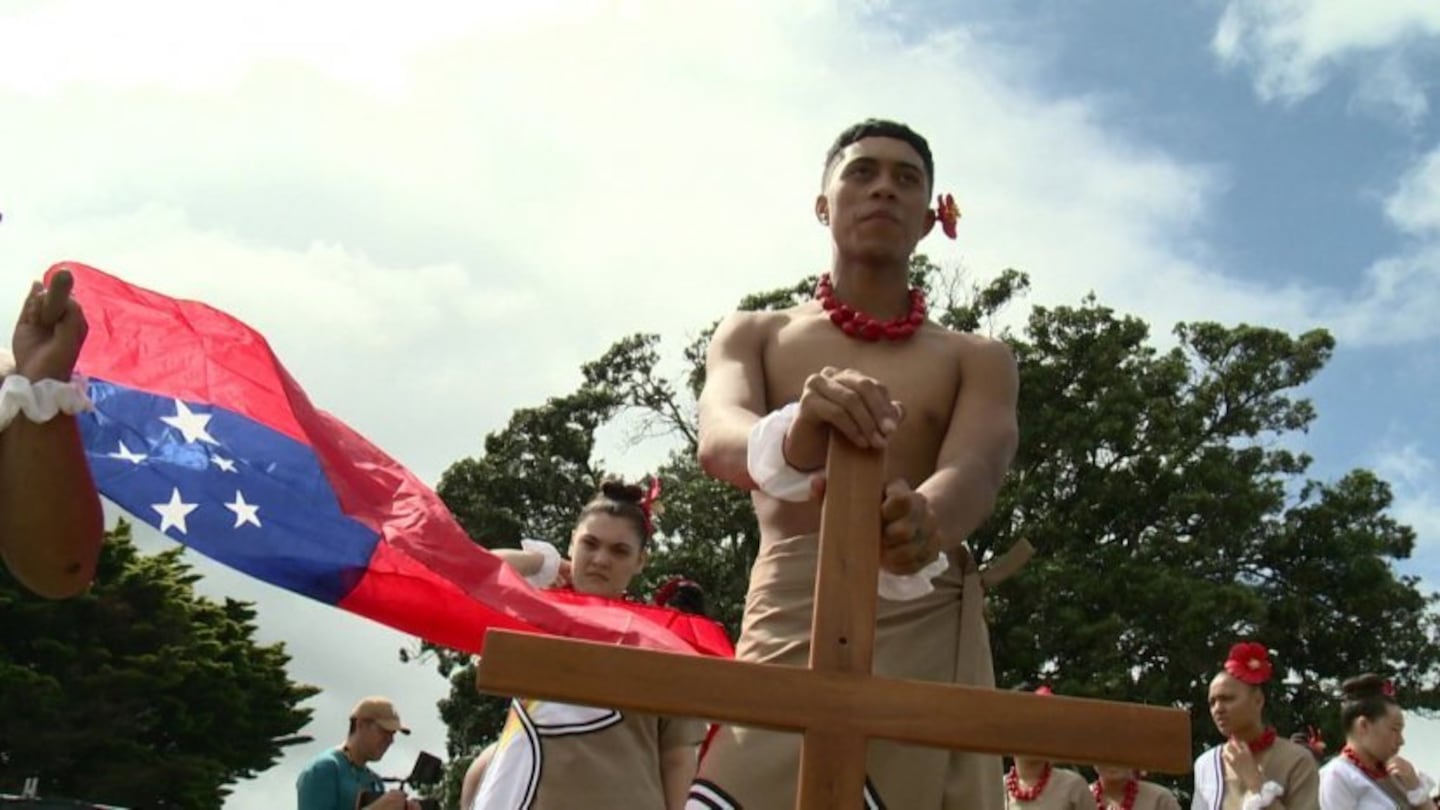An Auckland school switched from traditional dances to a theatrical performance on the Sāmoan stage at the biggest Polynesian festival in the world.
Marcellin College decided to make its 20-minute competitive performance an educational piece about Samoan history.
Head tutor Leki Jackson-Bourke says he thought he would use dance to teach his students about his homeland's past.
“What we’ve done is we have incorporated history lessons into our performance, and the way we choreographed it, and there’s a special piece we have choreographed in our Sāsā and Taualuga to honour our ancestors who were a part of the Mau Movement.
"We honour two kinds of figureheads in our culture, which is Lauaki and Tamasese," he says.
New Zealand, the UK and Germany had colonial rule over Sāmoa at various times in the early 20th century.
Marcellin College switches it up for Polyfest.
History ahead of prizes
The group's performance talks about two figureheads who were instrumental in leading their country to form their own government (the mau) to challenge colonial rule.
Jackson-Bourke believes this kaupapa was more important for his students than performing to win a prize at Polyfest.
“We’ve been working with the story of David and Goliath. We told the kids that, even though we are small, we’re like David we call on the strength of the Lord. We have a slingshot and we got to slay the giant.
"The giant to us is not the other schools. We’re not here for the competition; the giant to us is all the stereotypes, and the giant to us is all the negative statistics thrown at us. And just all the challenges that we have in life,” he says.
Secondary school performers on the Sāmoan stage perform six items with each having a certain amount of points that can be won.
The ‘Pese o le aso’, also known as ‘The song of the day’, holds the majority of points to be won and can be compared to the ‘mōteatea’ in a kapa haka composition.
Fuataimi (choir conductor) Sisina Tualagi felt thankful they learned about this part of Pacific history.
'Be proud of their culture'
“It means so much to me knowing about our history and that my ancestors were once in my position. Knowing the fact that they were in my position makes me emotional.
It encourages me to inspire and make sure our next generation is filled with just as much emotion,” she says.
The Sāmoan stage allows 64 performers, including tutors.
To compete, schools must perform a ‘taualuga’ (celebratory dance) at the end of their bracket.
Actor and playwright Jackson-Bourke says he wishes the knowledge of this unique performance will encourage his rangatahi to connect more with their culture.
“I hope this encourages our students to one, to learn their culture, to fall in love with their culture, to go back home to Samoa, and to encourage others to do the same. We have so many identity issues here in New Zealand that affects how we are as people, that affects our statistics, how we operate, and how we carry ourselves with people.
"It’s not a fair playing ground. Not all these kids speak Sāmoan, and not all these kids had the luxury of parents to teach them. We all have a range of different backgrounds. If anything I just want them to go away and be proud of their culture with whatever tools that they have to want to strive to do more,” he says.
Manurewa High School was the winner of the co-ed section, with McCauley High School taking out the girls' section and Kelston Boys placing first for all boys' schools.

